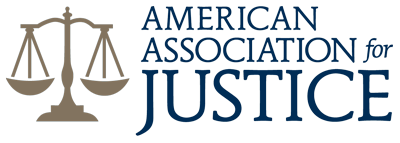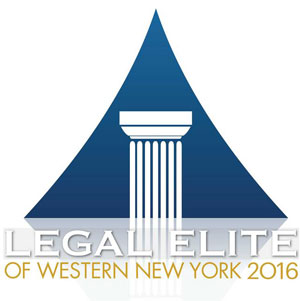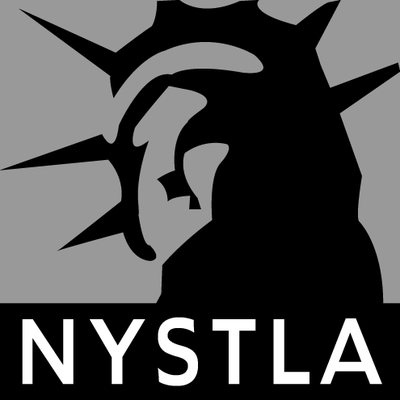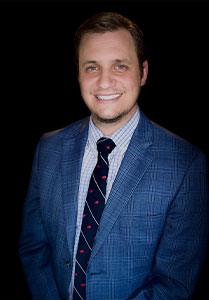When families place their loved ones in nursing homes, they trust that their family members will receive the care and attention they need. Unfortunately, there are cases where that trust is broken, and nursing home residents suffer from negligence. Neglect in nursing homes can lead to serious physical and emotional harm, and in some cases, it can even lead to death. For families who find themselves in such tragic circumstances, pursuing legal action may be necessary. However, one of the most important factors in determining whether a claim can be filed is understanding the statute of limitations. In New York, the statute of limitations for nursing home negligence claims plays a critical role in the legal process, and it is crucial for families to be aware of the timeframes involved. Andrews, Bernstein & Maranto, PLLC provides compassionate legal representation for families affected by nursing home negligence, ensuring their loved ones receive the justice and care they deserve.
The Statute of Limitations in New York for Nursing Home Negligence Claims
The statute of limitations refers to the specific time period in which a legal claim must be filed. In New York, nursing home negligence claims are subject to this rule. If the claim is not filed within the required timeframe, the opportunity to seek compensation through legal action may be lost. The statute of limitations for nursing home negligence in New York is generally three years from the date of the injury or when the injury was discovered. This means that if a resident suffers harm due to negligent care, their family typically has up to three years from that point to initiate legal proceedings. However, there are nuances to this timeline, and different factors can affect when the statute of limitations begins and ends.
It is important to understand that this three-year period applies to claims of personal injury stemming from negligence. If the nursing home negligence results in the death of a resident, the timeframe may differ. In cases where negligence leads to death, the statute of limitations for filing a wrongful death lawsuit is two years from the date of the individual’s passing. The distinction between personal injury and wrongful death claims is significant, as families may need to take different legal approaches depending on the nature of the harm experienced by their loved one.
Tolling and Exceptions to the Statute of Limitations
While the statute of limitations for nursing home negligence claims in New York is generally three years, there are some exceptions and circumstances where the timeframe may be extended. One such exception is the legal concept of tolling. Tolling occurs when the statute of limitations is paused or delayed for a specific reason, thereby extending the time a family has to file a claim. Tolling may apply in certain situations, such as when the injured party is not immediately aware of the harm they suffered, or when the negligent conduct was intentionally concealed by the nursing home staff or administration.
In cases where nursing home residents have diminished mental capacity or are unable to communicate effectively due to conditions such as dementia or Alzheimer’s disease, tolling may come into play. This is because the residents may not be able to express or recognize the harm they have experienced. If a nursing home conceals the fact that negligence occurred or fails to inform the family about injuries caused by poor care, tolling could potentially extend the statute of limitations. However, it is important to note that tolling does not always apply, and each case must be assessed on its individual merits to determine whether an extension is warranted.
Another potential exception to the standard statute of limitations involves minors. If the nursing home resident is a minor at the time of the negligence, the statute of limitations may not begin until the individual reaches the age of 18. This exception is designed to ensure that individuals who are not of legal age when the negligence occurs are given a fair opportunity to file a claim once they are legally able to do so.
The team is very personable, patient and empathetic with their clients. They are upfront with you and will explain the entire process with you, they never lead you to believe otherwise, they tell you like it is and will not sell you a million dollar dream. Trust in Andrews, Bernstein & Maranto, PLLC, they work for you and he looks out for your best interest.” - Jane D.
Challenges of Delayed Discovery
In many cases of nursing home negligence, the harm suffered by the resident may not be immediately apparent. Negligence in nursing homes can manifest in various ways, including bedsores, malnutrition, dehydration, infections, falls, and even emotional or psychological abuse. Some of these conditions develop slowly over time, and families may not realize that their loved one has been a victim of neglect until the damage has already been done.
In such cases, the statute of limitations may be extended through what is known as the discovery rule. The discovery rule allows the statute of limitations to begin from the point at which the family or the injured party becomes aware, or should have reasonably become aware, of the harm. This rule is intended to provide justice for victims of negligence who could not have reasonably known about the injury earlier. However, even under the discovery rule, families must act quickly once they suspect negligence to avoid missing the deadline for filing a claim.
The Importance of Timely Action
Understanding the statute of limitations for nursing home negligence claims is crucial for families seeking justice for their loved ones. Once the statute of limitations expires, legal action cannot be taken, and families may be left without the opportunity to recover compensation for the harm caused. Acting promptly is essential not only to comply with the statute of limitations but also to preserve evidence and build a strong case. Nursing home negligence cases can be complex, and gathering evidence, obtaining medical records, and interviewing witnesses all take time. The sooner legal action is initiated, the better the chances of building a successful claim.
It is also important to be aware that nursing homes may attempt to delay or deny claims in order to avoid liability. In some cases, nursing homes may argue that the statute of limitations has already expired in an effort to have the case dismissed. Families who suspect negligence should not wait to seek legal advice. Consulting with an experienced attorney can help clarify the timeframe for filing a claim and ensure that the rights of the injured party are protected.
Should I Take The First Settlement Offer? Steps to File a Personal Injury ClaimRelated Videos
Seeking Legal Assistance
The legal process for nursing home negligence claims can be overwhelming for families already dealing with the emotional and physical toll of their loved one’s suffering. Understanding the statute of limitations is just one aspect of navigating the legal system. Filing a claim within the appropriate timeframe requires knowledge of New York’s laws, and there are additional procedural requirements that must be met. Without proper legal guidance, families may struggle to meet these requirements and risk losing their ability to pursue compensation.
Working with an experienced attorney who is familiar with nursing home negligence cases in New York can make a significant difference in the outcome of the case. An attorney can assess the facts of the case, determine the applicable statute of limitations, and take the necessary steps to ensure that a claim is filed within the required time period. Legal professionals also have the resources to gather evidence, consult with medical professionals, and negotiate with nursing homes and insurance companies on behalf of their clients.
Verdicts & Settlements
When a loved one suffers harm due to nursing home negligence, it is natural for families to feel overwhelmed and uncertain about their legal options. However, understanding the statute of limitations is a critical first step in determining whether legal action can be taken. In New York, families generally have three years to file a nursing home negligence claim, but there are exceptions and circumstances that may extend or shorten this timeframe. Delays in recognizing the harm or gathering evidence can jeopardize the success of a claim, which is why it is so important to act quickly.
If you believe that your loved one has been the victim of nursing home negligence in New York, Andrews, Bernstein & Maranto, PLLC can provide the legal support you need. Our team is dedicated to helping families seek justice for their loved ones and holding negligent nursing homes accountable for the harm they cause. We understand the complexities of nursing home negligence cases, and we are committed to fighting for the compensation you and your loved ones deserve. Contact us today to discuss your case and ensure that your rights are protected within the statute of limitations.












